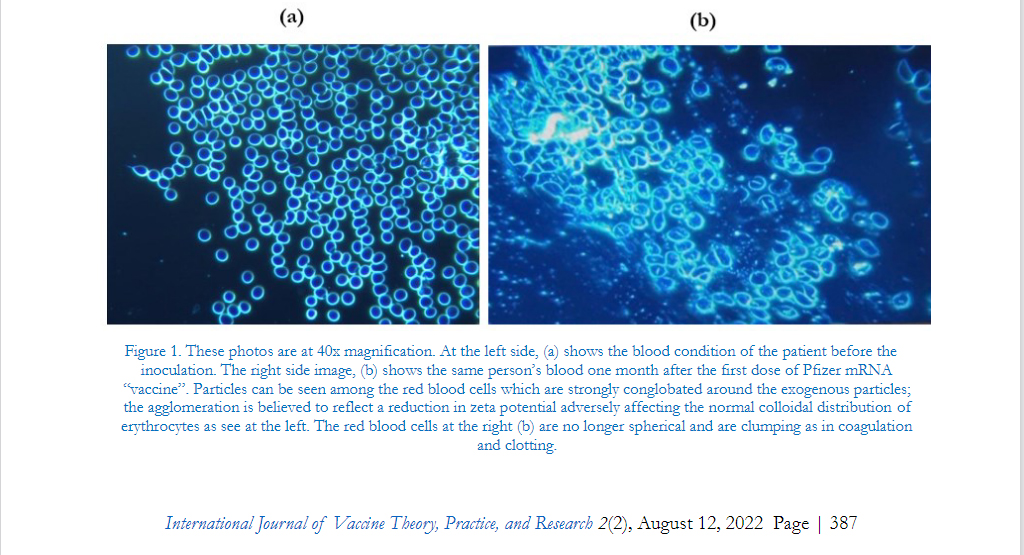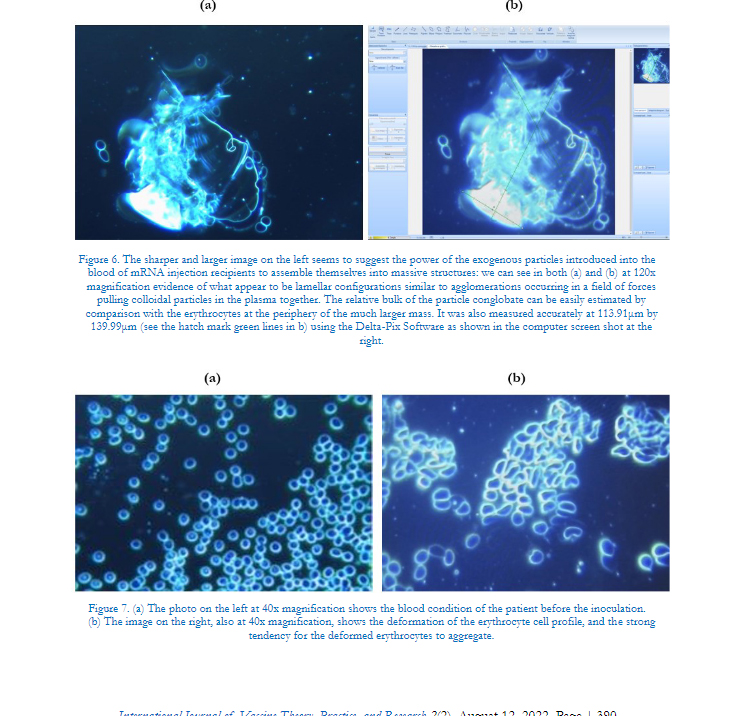The Blood of the Jabbed.
This is a peer reviewed study of 1006 people who took the jab & what happened with their blood.
94% of the people showed abnormalities in their blood after the jab. 100% of these showed alterations to their blood post injection.
This is not normal.

This is a peer reviewed study of 1006 people who took the jab & what happened with their blood.
94% of the people showed abnormalities in their blood after the jab. 100% of these showed alterations to their blood post injection.
This is not normal.


This study used a standard dark field microscope. The changes in the blood are obvious and immediate to observe.
Any medical expert with standard microscope equipment would have been able to observe these horrific abnormalities in the blood.


Any medical expert with standard microscope equipment would have been able to observe these horrific abnormalities in the blood.



All the International abnormal blood samples of injected persons, 948 cases, showed tubular/fibrous formations & frequently also crystalline & lamellar formations with extremely complex but consistently similar morphologies across all of the patients with abnormal blood samples. 





This is what they did to us.
It’s obvious, This is the damage that’s being caused.
These injections need to STOP, they need to STOP NOW.


It’s obvious, This is the damage that’s being caused.
These injections need to STOP, they need to STOP NOW.



Link to the peer reviewed study PDF
ijvtpr.com/index.php/IJVT…
Link to the article site International Journal of Vaccine Theory, Practice, and Research
ijvtpr.com/index.php/IJVT…
Link to editorial write up at Epoch Times.
theepochtimes.com/italian-study-…
ijvtpr.com/index.php/IJVT…
Link to the article site International Journal of Vaccine Theory, Practice, and Research
ijvtpr.com/index.php/IJVT…
Link to editorial write up at Epoch Times.
theepochtimes.com/italian-study-…
In a further study this was observed in the blood of the jabbed.
These abnormal shapes have Never been observed in blood samples pre 2021
It’s not normal.



These abnormal shapes have Never been observed in blood samples pre 2021
It’s not normal.




This study was posted by the Vax Control Group @VaxControlGroup
Sorry I missed it.
Extremely concerning questions about what’s happening to peoples blood.
The full video presentation is here 👇
Sorry I missed it.
Extremely concerning questions about what’s happening to peoples blood.
The full video presentation is here 👇
https://twitter.com/vaxcontrolgroup/status/1578044282644049921?s=46&t=TNkkJnS3KPLLgGcGucmc3A
An additional study has been highlighted in this thread
@DrAseemMalhotra Im not sure if you have seen this, but it corroborates your findings.
@ClareCraigPath have you seen this, it’s evidence
@GirardotMarc this confirms the aspiration problem. In part
@DrAseemMalhotra Im not sure if you have seen this, but it corroborates your findings.
@ClareCraigPath have you seen this, it’s evidence
@GirardotMarc this confirms the aspiration problem. In part
https://twitter.com/riseodafeline/status/1579123019657928705?s=46&t=QdUwHqUf_WaAUKfgH9tamw
I will add pictures and narrative later.
• • •
Missing some Tweet in this thread? You can try to
force a refresh



























